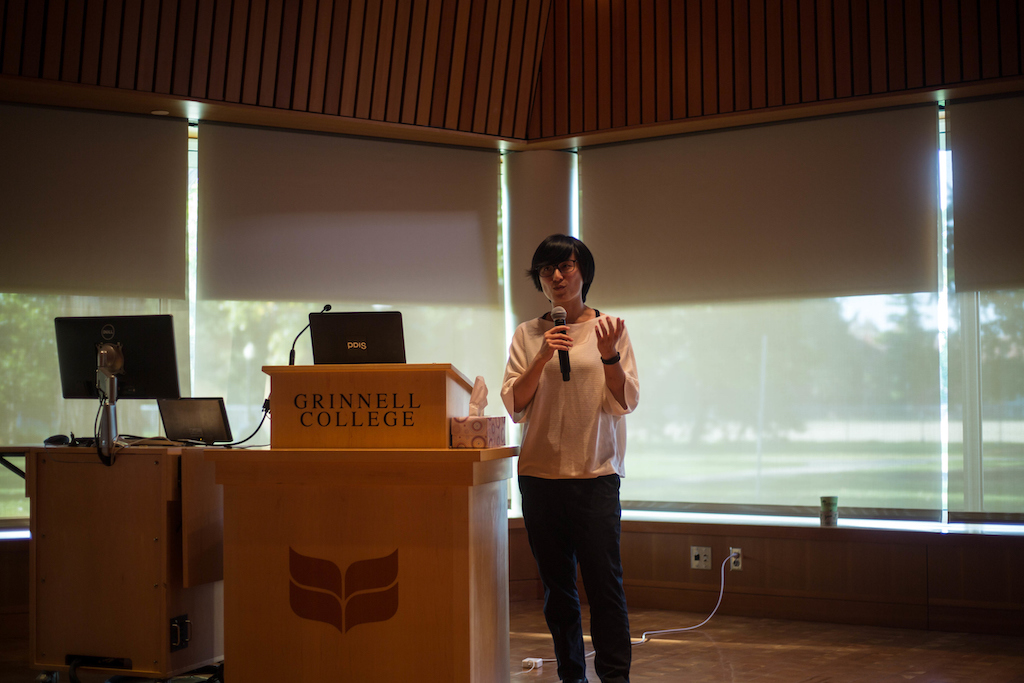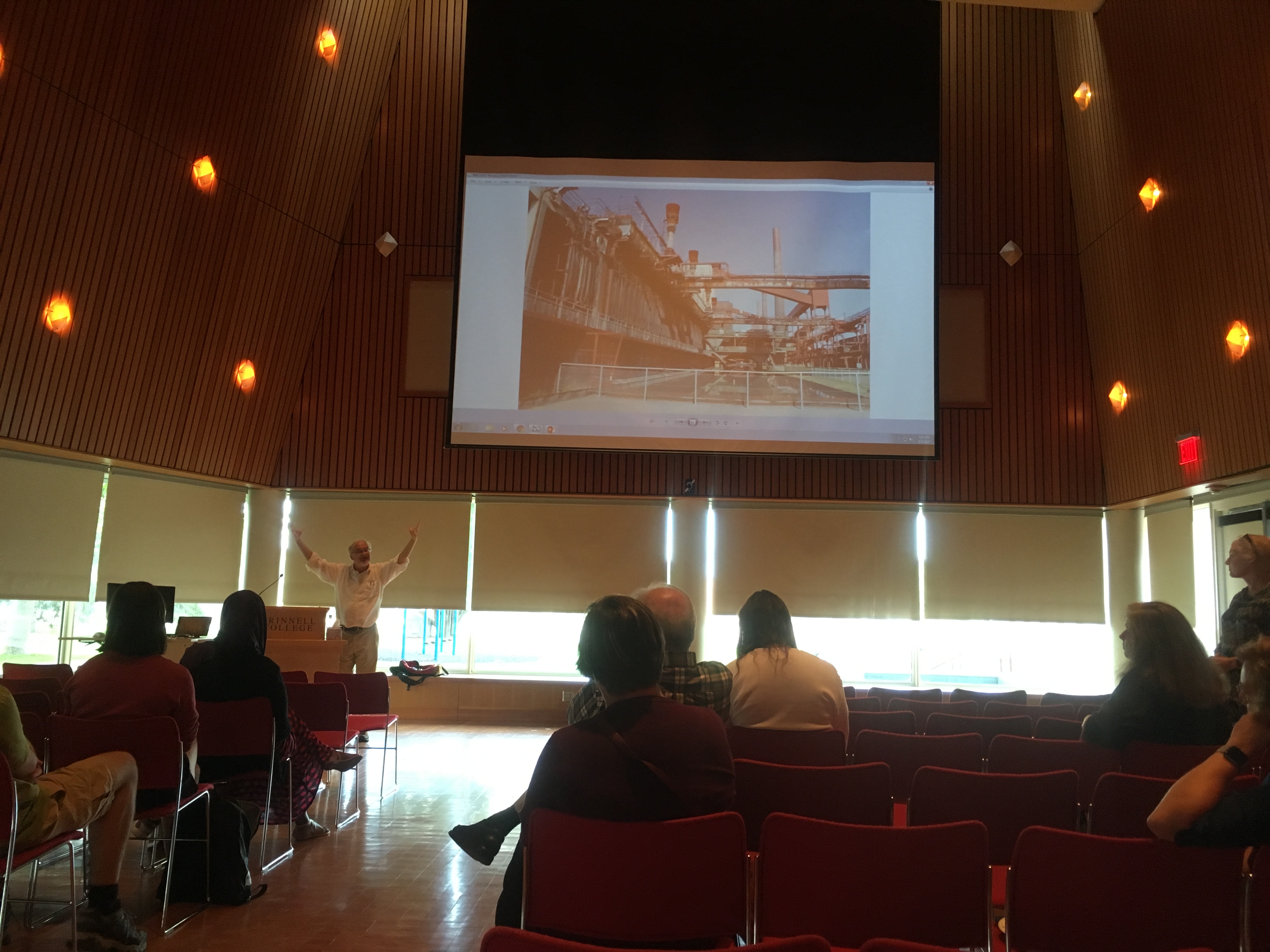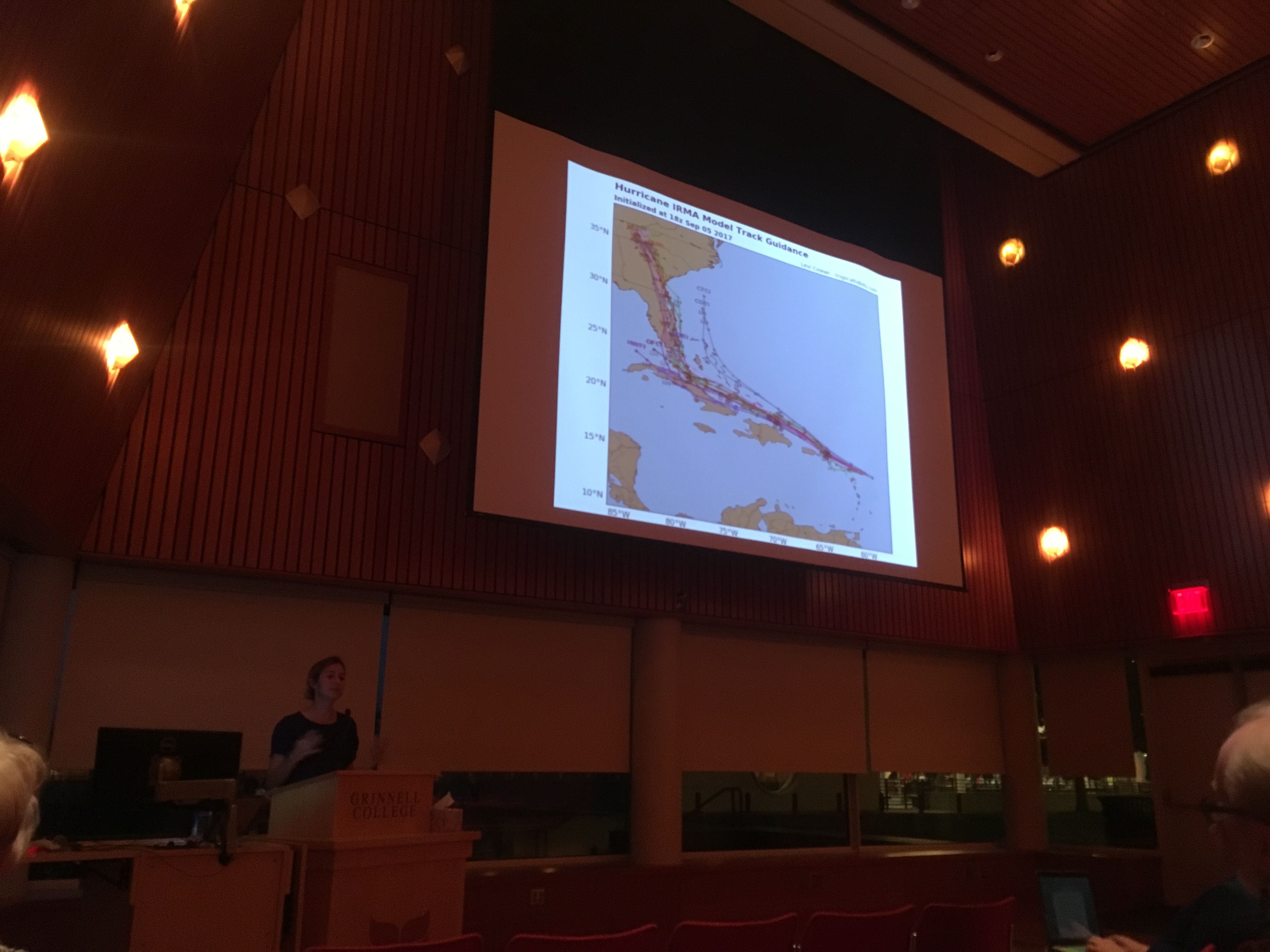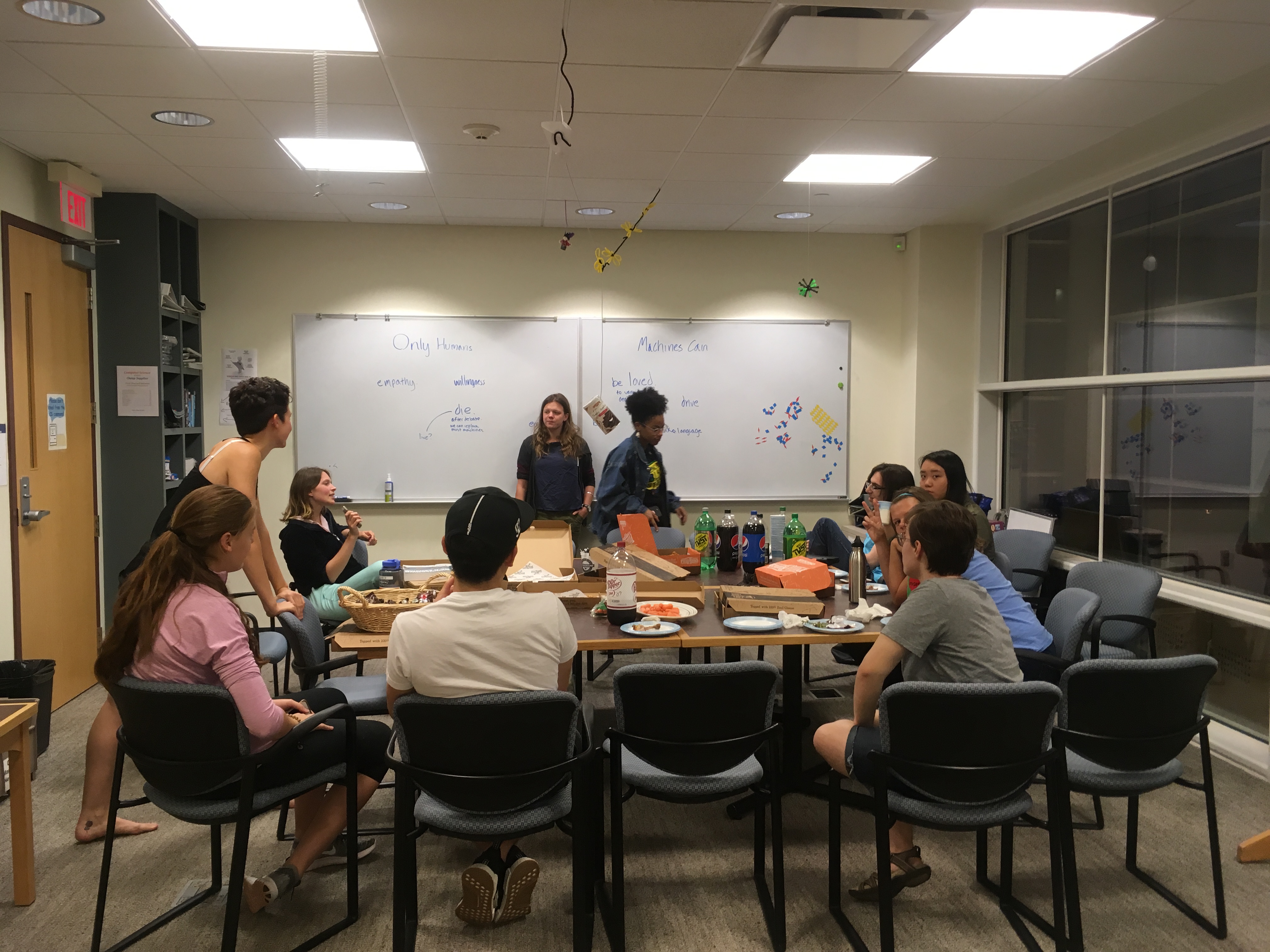How does technology affect the future of democracy? Lin Shuzhen's visit to the United States
At the beginning of September 2017, PDIS's re:architect, Lin Shuzhen, visited the United States. What information did she exchange in the United States? Welcome to care!
PDIS's re:architect Lin Shuzhen visited the United States in early September 2017 to participate in the Our Urban Future Symposium, "Democracy from the Future: Taiwan" (Translated), and exchange national experiences with teachers and students, other speakers at Grinnell College University before and after the presentation.

The content of this exchange mainly includes how Taiwan began to promote the open government after the 318 movement. In the Uber case, Lin Shuzhen described the vTaiwan project initiated by the g0v community, how to use pol.is.is/){:target="_blank"} and other new technologies, with a network-integrated conference process to implement multi-stakeholder discussions.
Participants are mainly students in the Department of Information and Politics and Economics, as well as political scholars who are particularly interested in and researching open government. In addition, professors including the Department of History and the Department of Classical Politics are involved.

Lin Shuzhen said that after sharing, I received many feedback from the participants. Many students have never heard of the 318 movement, and it is interesting to hear these stories for the first time; even some people think that PDIS is the team that makes Pol.is. However, the most discussion is the relationship between "people" and "machines". Before joining PDIS, Lin Shuzhen had studied and worked in Europe for a few years. During that time, he participated in the curation of "Museum of the Future" and discussed what decisions humans are willing to make machines make. How can people help each other? At the end of the exhibition, they made a hypothetical future government decision-making center, using AI to calculate various policies and issues in government governance, and then let people decide what issues AI can't decide.
For example, if you want to reduce the unemployment rate and let more people work in the city, you need to build a highway. However, after calculation, this highway may increase the economy by 5%, but it also reduces the number of animals in the nearby forest by 5%. Is this highway to be covered or not? Such ethics and value measurement require people to intervene.

Lin Shuzhen believes that many traditional viewpoints regard the machine as a competitive relationship with people, and that the machine will replace some human work. This view has also been put into the view of AI. However, during the time when PDIS worked with Tang Feng, she found that Tang Feng did not think that the machine had a competitive relationship with people, but more of a collaborative imagination, that is, how the machine works with people.
In Lin Shuzhen's observation, Grinnell's teachers and students are quite novel about how to develop the relationship between humans and robots in a way that is trustful and collaborative. However, many people have questioned such claims, while others think that this sounds like a Utopian world that cannot be realized.

For this question, Lin Shuzhen’s answer is “but that doesn’t stop us from trying”. She believes that through continuous trials, there is always the possibility of an environment of successful operation, in the proper political system and citizens. Literacy, giving humans the opportunity to work with machines to find a way out of democracy.
When there was no internet in the past, each topic took a lot of time to discuss. In Athenian democracy, the municipality is determined by a certain group of citizens who meet certain criteria. Although each problem takes a long time to discuss, this is called direct democracy. Every citizen has the right to participate directly in the municipality. Pipes, and their opinions are fully respected and will be fully discussed by other citizens. But with the change of the political system, it gradually became a representative system. After the Internet boomed, many scholars began to think about the possibility of direct democracy. For example, Lin Shuzheng, Pol.is is one of the possibilities. With the help of AI and machine learning, it is more efficient to promote the situation of multiple users or the public to discuss the problem.
In the Internet age, the impact of many technologies on society will be larger and wider than that that can be affected in the past. However, our current situation is that the speed of change of law cannot keep up with the progress of science and technology, and naturally there will be more and more The more regulations are out of date. Lin Shuzheng said that through the structure of vTaiwan, Taiwan tried to allow public opinion to influence the formation of policies at an earlier stage, and also allowed government agencies to cope with the challenges from new technologies.
Tang Feng pointed out that Taiwan has made many attempts on the vTaiwan and Join platforms. Although the degree of recognition of “prior participation and later responsibilities” by public servants varies according to the cultures of different countries, the existence of vTaiwan and Join platform itself can make people in many other countries think: “Since Taiwan can, we Why not?”
At the same time, the use of SayIt verbatim, Pol.is and other technologies on these platforms is also a reference for many international communities. Tang Feng, for example, the British, French and other governments have begun to think about how to use these platforms to link young people and rebuild trust between generations.
Tang Feng believes that with the advancement of technology, the flow of information has a different look. These innovations will further support cross-generational collaboration. Today's democracy is no longer just a vote. PDIS will maintain the foundational value of democracy, lower the threshold for policy participation, and work with the world to reduce the burden of public servants on the one hand, and to make policies more in line with the needs of the people.
 (This work is licensed under a Creative Commons Attribution 4.0 International License.)
(This work is licensed under a Creative Commons Attribution 4.0 International License.)